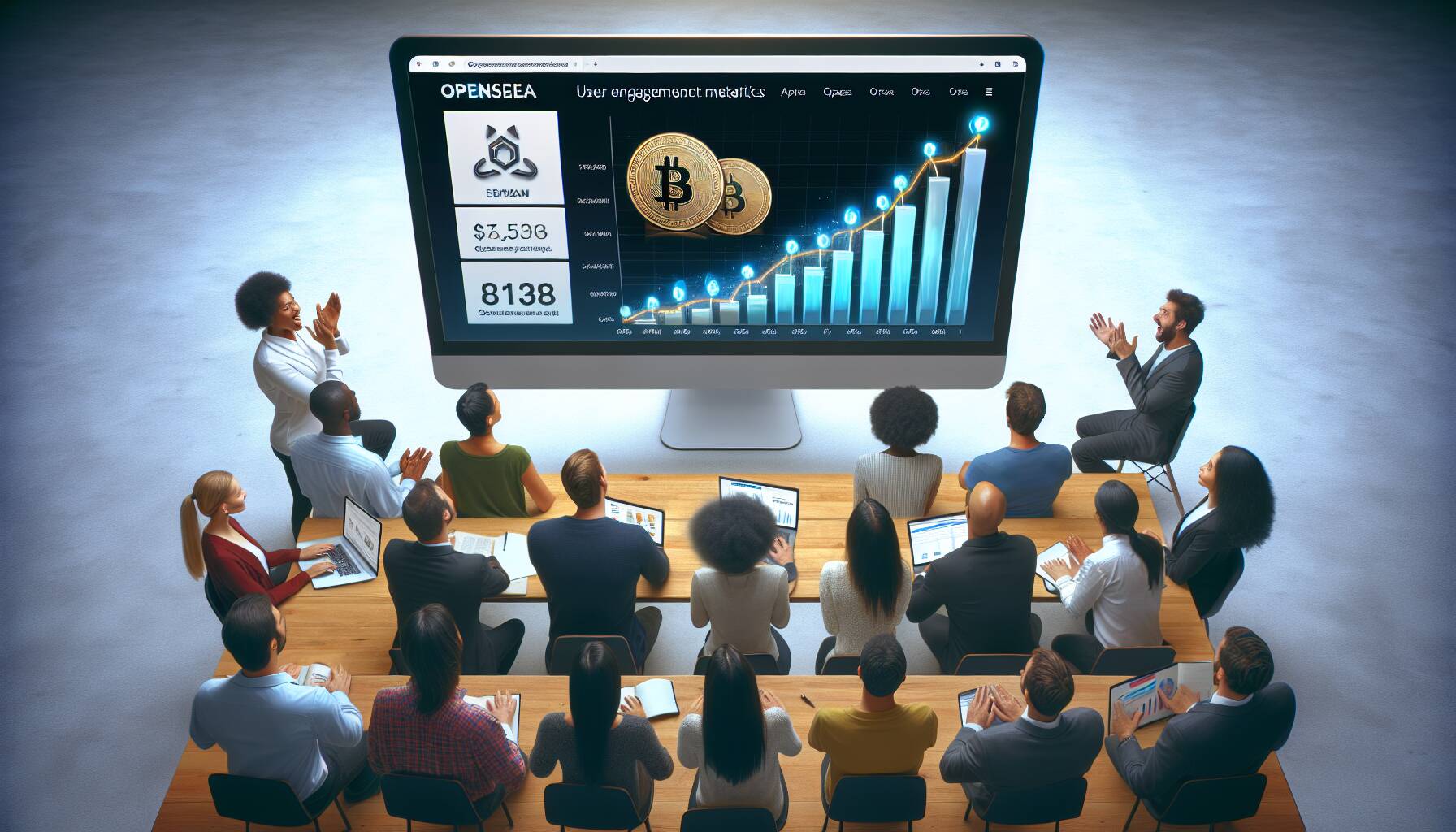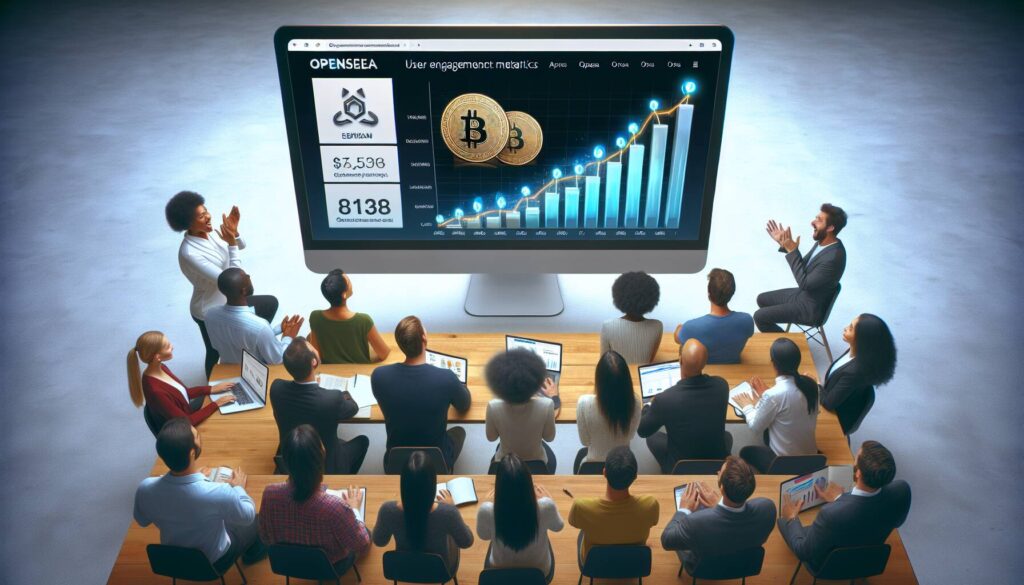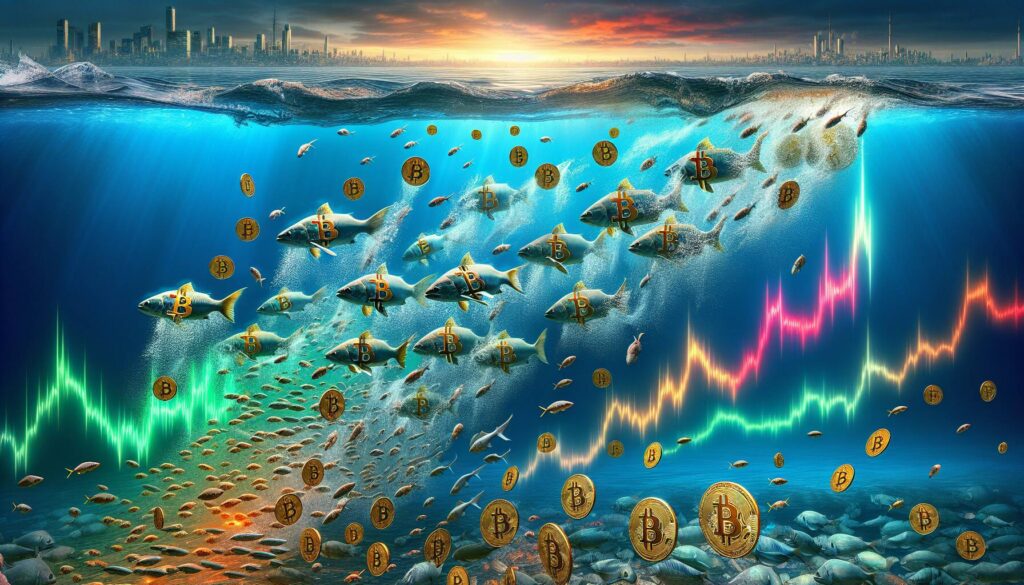The cryptocurrency landscape is evolving, and one of the latest developments includes the integration of a new token on the popular NFT marketplace, OpenSea. This integration promises to enhance user engagement by enabling users to stake their tokens behind their favorite collections or projects. According to the co-founder of OpenSea, Devin Finzer, this functionality aims to empower creators and collectors alike, allowing them to show support for the projects they are passionate about.
“The ability to stake tokens will allow our community to invest their trust and resources in the projects they believe in,” Finzer stated, highlighting an exciting shift in how users interact with digital assets.
As the NFT market continues to grow, with platforms like OpenSea leading the charge, the introduction of such innovative features is likely to attract more users and drive deeper connections within the digital art and collectibles community. With staking becoming a buzzword in DeFi and the NFT space, it comes as no surprise that stakeholders are eager to explore new ways to engage and benefit from their investments.
This development signifies a broader trend in the cryptocurrency world, where user-centric features are becoming essential for sustained growth and community development. As users gain the ability to stake tokens, they are not just passive participants but active contributors to the ecosystem’s vibrancy and health.

Integration of Token into OpenSea
This integration presents notable opportunities and implications for users and the NFT ecosystem.
- Token Integration:
- The token will be integrated into OpenSea, enhancing the platform’s functionality.
- Users can stake tokens behind their favorite collections or projects.
- User Engagement:
- Staking tokens can increase user involvement with specific collections, promoting community-building.
- This feature may incentivize users to invest in and support projects they believe in.
- Potential Financial Impact:
- Staking rewards could provide additional income for users, depending on the project’s success.
- The value of the token may fluctuate based on overall market trends and project performance.
- Market Dynamics:
- Increased staking could impact the liquidity and demand for certain NFTs.
- Projects with strong community support may see enhanced valuation.
- Community and Collaboration:
- Enhances collaboration among users and creators, fostering innovation in the NFT space.
- May lead to more collaborative projects, benefiting the ecosystem overall.
Exploring the Future of Staking in NFT Marketplaces
The recent announcement regarding the integration of a new token into OpenSea marks a significant shift in how users can engage with their favorite NFT collections. By allowing users to stake tokens behind selected projects, this initiative creates a unique opportunity for collectors and investors to earn rewards while demonstrating their support for specific digital assets. This feature aligns closely with trends seen in DeFi, where staking mechanisms have proven effective in enhancing liquidity and user engagement.
Competitive Advantages: The integration of staking on OpenSea capitalizes on the booming NFT market, presenting a compelling reason for users to become more involved with the platform. Compared to other marketplaces that might lack staking functionalities, OpenSea’s move could attract more users, especially those familiar with DeFi practices. This enhanced user engagement could lead to increased trading volumes and overall market vibrancy, benefiting both creators and collectors.
Competitive Disadvantages: However, this shift may pose challenges for other NFT platforms that do not offer similar staking features. Existing users might be lured away by the potential for yields on their investments, weakening the communities and ecosystems of competing platforms. Additionally, there may be concerns regarding tokenomics and the potential for market volatility, which could dissuade novice users from entering the staking arena.
Target Beneficiaries: This development primarily benefits NFT collectors and enthusiasts keen on maximizing their investments. Gamers and digital artists could also see advantages, as platforms that incorporate staking often incentivize artistic creation and innovative projects. However, for those less familiar with staking mechanisms or the risks involved, this new feature could create confusion or reluctance to participate, potentially limiting its reach among broader audiences.
















